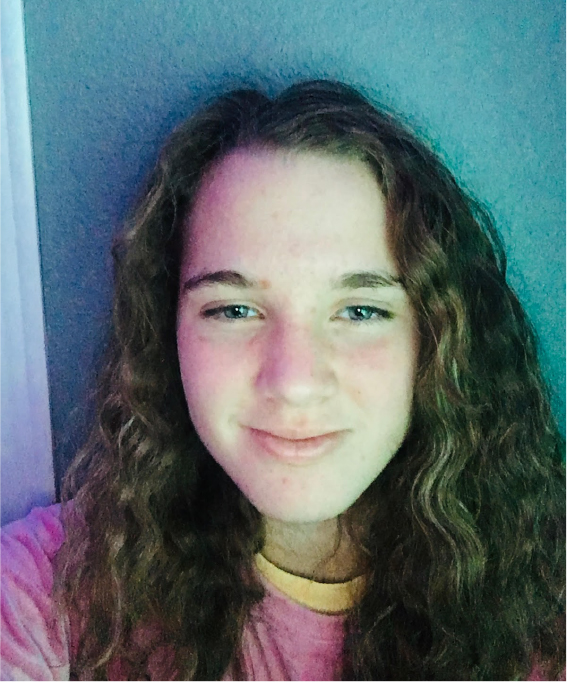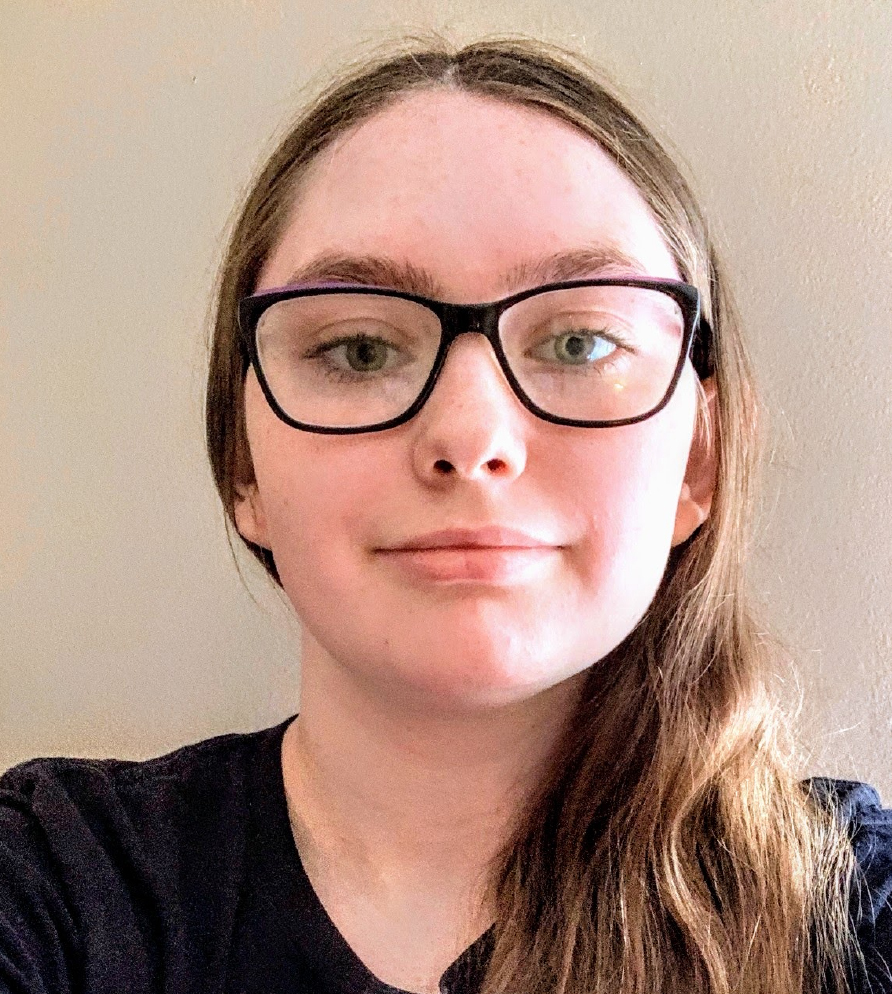Editor’s Note: From a global pandemic to riots concerning the presidential election, 2020 was truly a wild ride. We all know it was hard; but just how hard was it? To examine this issue, ENN’s student journalists interviewed teens from across Oklahoma, using the same set of questions, and compared their answers.
Story By Jensen McKee, Haleigh Freeman, Hannah Rose, Amanda Barnett, and Makhi Callins. Photo Illustration by Bekah Disney
Some people didn’t see much of a change in life between pre-pandemic and now. Others struggled to keep their heads above the water.
Jackson Davis said he felt stressed and trapped.

“When lockdown hit us, I think I felt trapped. I felt like I couldn’t go anywhere or do anything, which was basically true. I think at first it was stressful to me because you don’t know who has it or if you’re in contact with them and that idea freaked me out so much,” Davis said. “And still, to this day, it bothers me, but I am being careful by wearing my mask and doing all things necessary. The way that I handled stress was just breathing. Slow breathing is a really good stress reliever, and my walks around my neighborhood were a lot of fun.”
He wasn’t alone, lots of people were in the same boat. Both Faith Wilkerson and Kimberly Norman said the year was stressful, but they both found ways to deal with the stress. Wilkerson used online, or over the phone therapy sessions to cope. And Norman used reading and clay sculpting to keep her mind occupied, and from boredom during the lockdown.
Read Makhi Callins’ Essay On The Important Of Mental Health During A Pandemic
In contrast, 2020 wasn’t as stressful for others, such as Ethan Christenberry or Reagan Greenwood.
“Since the outbreak, life hasn’t been too stressful for me. There were a few trips we had to cancel, which was disappointing but not necessarily stressful.” Christenberry said.
Greenwood had a similar stance, saying “Life hasn’t become very stressful. I’ve been able to adapt pretty well to the pandemic lifestyle.”

Each person interviewed had methods for keeping safe during the pandemic. Greenwood said she avoided leaving the house. “To stay safe during the pandemic, my family and I stayed home as much as possible. When we needed to go to the grocery store, we wore masks and sanitized our hands after every grocery run.”
Others like Wilkerson wore masks constantly and socially distanced as much as possible. “Social distancing and wearing masks,” she said.
Using masks appears to be a popular choice, both Norman and Christenberry used them as well. Along with masks, Norman also stocked up on hand soap.
“We bought a bunch of masks and more hand soap to wash our hands more often,” she said.
Christenberry said her family stocked up on things to kill the virus.
“Mask and hand sanitizer whenever I went out. Disinfected parts of our house every week or so.”
Davis took the cleaning route as well. “When covid hit, my family and I didn’t go anywhere. We didn’t go to church on Sundays. We didn’t even go get groceries in person; we ordered them online. We washed every package that came in. There didn’t go one package (that was) unsanitized,” he said. “We basically took every precaution we could to be safe.”
At the beginning of the pandemic people were buying out everything so they could prepare. Some people had no problem with getting supplies. Others struggled. Wilkerson said her family was one of the few who had no trouble purchasing these often out-of-stock supplies.
Greenwood said her family always had what they needed. “We didn’t have issues getting food or supplies for the lockdown,” she said.
Not everyone was so lucky.

Davis said his family faced difficulty getting supplies. “I think we did have trouble getting food for a little bit, but the worst thing was toilet paper. No one had toilet paper,” he said.
Norman’s family had trouble getting “any kind of canned food, pasta, mashed potatoes, along with very low amounts or no toilet paper in stores.”
Christenberry said his family had the same problem.
“Yes. We struggled to find toilet paper and paper towels during the beginning of the pandemic. People also began to buy baby formula as a substitute for powdered milk, so my sister could barely find any for her baby,” he said.
In an effort to get back to normal, some went back to school, while other teens interviewed transferred to EPIC Charter Schools. A few who went to to their brick and mortar school. In an effort to slow the spread, some traditional public schools such as Wilkerson’s school, went on-line. But for Wilkerson the online structure brought on a whole new set of stress.
“It is more stressful online,” she said.
Other schools simply put precautions in place to slow the spread as much as possible. Christenberry’s school was one of them.
“We can’t hand in papers to the teacher. We have to submit them via email or Google Classroom. Desks are farther apart than they used to be,” he said.
Other schools went back to in-person even with concerns from the students.
“My school went back to in-person learning instead of online,” Davis said. “I think it would have been better for them to go online, or to have the option to go online if you felt like it, but they don’t have that option.”
With the new year, some students hoped the pandemic would take a turn for the better, others believed that it would stay the same and a few believed things would take a turn for the worse; but there was a common thread, which was hope for the COVID-19 vaccine.
“I believe we will still mostly be in quarantine but by then they should have started trying was one of them, saying that; the vaccine, making the number of cases lower and having much fewer people panicking,” said.
Christenberry agreed. “I don’t think much will change,” he said. “The COVID vaccine may be fully developed and available anywhere in 2021.”.
Others like Wilkerson don’t have much hope for the upcoming year. “I don’t, I think it will be the same,” she said.
And even though Davis said he hoped 2021 will be different, he remains skeptical. “I’m not sure if [a COVID-19 vaccine is] going to work or what it’s even going to do to us in the long run.”
Most of those we interviewed did not have a run-in with the virus. Wilkerson and Norman both no one in their family got sick. The same for Greenwood .“My family never had COVID. We took all of the necessary precautions, and we were fortunate enough not to catch the virus,” she said.
Christenberry had a close call, while he didn’t actually get it he and his father did have contact with a person who was sick with the virus.
“Dad and I came into contact with it once,” he said. We both stayed at an inn until we could get tested.”
Davis said his family, too, avoided the virus, but he saw the effect on several others.
From difficulty getting food to fear of the virus, last year was a stressful year, but each student agreed that, with the development of vaccines, that life is slowly returning to normal and now 2021 offers some hope.

